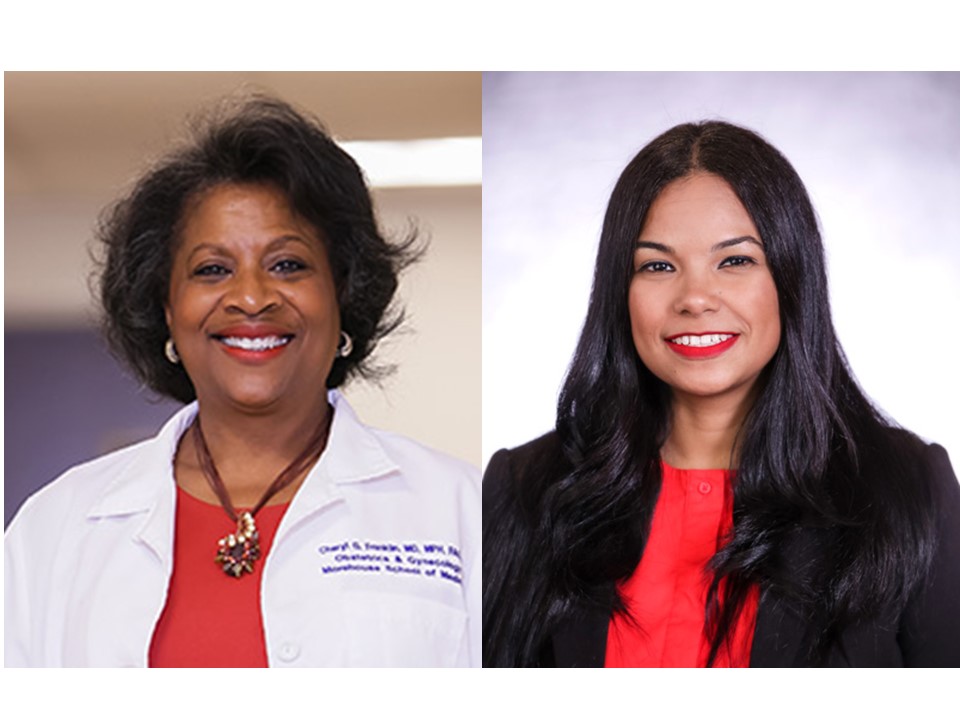Leading NIH’s Implementing a Maternal health and PRegnancy Outcomes Vision for Everyone (IMPROVE) Initiative in Georgia

In Georgia, black women account for 60% of pregnancy-related deaths and are 3.3 times more likely to die than non-Hispanic white females. The Georgia Clinical and Translational Science Alliance (Georgia CTSA) will establish a foundation for the Implementing a Maternal health and PRegnancy Outcomes Vision for Everyone (IMPROVE), across the state of Georgia. Georgia IMPROVE will establish a community focused multidisciplinary perinatal care research and intervention network to inform priorities on preventable maternal mortality (MM), severe maternal morbidity (SMM), and to promote health equity.
The overall goals of Georgia IMPROVE are to incorporate strategic community partnerships and participation to address health disparities in maternal health; and establish a foundation to expand research on the leading causes of MM and pregnancy related morbidity, with a focus on patient centered evidence-based prevention. This project aligns with Georgia CTSA’s Community Engagement and Integrating Special Populations programs, and will establish a foundation for a Perinatal Care Research and Intervention Network that will inform future research, with data on sociocultural and behavioral determinants of MM/SMM.
Specific aims are to develop a network of women, healthcare providers and health systems, to identify barriers to, and develop stakeholder-informed solutions for optimal maternal health equity; and to conduct a pilot feasibility study of patient-centered perinatal care coordination, using remote monitoring, to support care transition from perinatal through 42 days postpartum. These findings will support future research that will prioritize the needs of women and their families, as well as inform culturally congruent approaches in care transitions.
Cheryl Franklin, MD, MPH, Obstetrics & Gynecology Specialist and Assistant Professor at Morehouse School of Medicine (MSM) serves as the Project Lead. Natalie Hernandez, PhD, MPH, Assistant Professor in the Department of Community Health and Preventive Medicine, MSM and Interim Director of the MSM Center for Maternal Health Equity, is the Project Co-Lead.
“Being an OB/GYN trained physician practicing for over 30 years in Atlanta with a public health degree, I have a strong background and interest in public health issues related to health disparities in women’s health. We have a unique opportunity here in Georgia to be a leader in this effort to develop a community focused, multi-stakeholder answer and opportunity for community partners, caregivers, paraprofessionals and providers to come together to alleviate challenges in maternal health. By developing a core network throughout the state of Georgia, we will conduct perinatal research in a variety of ways including the use of new technologies. This network will share knowledge and best practices in implementing and deploying interventions to vulnerable populations throughout the state,” says Dr. Franklin.
Co-Project Lead Dr. Hernandez remarks, “This is truly a state-wide initiative where we need to be inclusive of disenfranchised populations and rural communities. The leadership training I received as a Georgia CTSA UL1 Diversity Scholar has prepared me for my role co-leading the IMPROVE initiative in Georgia. My research has explored women’s health inequities in rural communities and how the use of telemedicine can eliminate some of the access to care barriers.”
The most vulnerable time for severe maternal morbidity and maternal mortality is during the first 42 days following delivery. With additional monitoring and more closely intervening with women after delivery, morbidity can be reduced. Dr. Franklin comments, “We are emphasizing the concept of the 4th trimester for an early postpartum visit 2-3 weeks after delivery, including via telemedicine and tele-monitoring, so women at risk might be more closely monitored. Currently, we do not have effective public health messaging to communicate to women, their families, and community the danger signs after delivery. There are delays in preventing severe maternal morbidity and maternal mortality when a woman does not recognize she has a problem, has difficulty getting to care, and receiving the care she needs. The first two delays happen at home and in the community, so it is important we change the public education around maternal morbidity and mortality.”
Dr. Hernandez says, “We want to create messaging that resonates with the community and is simple like the three W’s. The postpartum period differs in communities, so we need messages that are culturally relevant. I sit on the maternal mortality review committee for Georgia and in 2016, we found 70% of cases were preventable. There is a lack of coordinated care to comprehensively focus on women’s health. These are critical issues we are addressing.”
Georgia IMPROVE aims to find a new, innovative and comprehensive way of caring for women who are pregnant and after delivery. If a woman can receive a set of caring methods customized to that woman’s need, the majority of the burden of morbidity and mortality in maternal health may be alleviated.
“Similar to the COVID pandemic, we are all in this together. It will take all of us collectively as an interdisciplinary team to address the root causes of what is happening and develop interventions that are accessible to all,” adds Dr. Hernandez.
The Georgia CTSA is a statewide partnership between Emory, MSM, Georgia Tech, and UGA and is one of over 60 in a national consortium striving to improve the way biomedical research is conducted across the country. The consortium, funded through the National Center for Advancing Translational Sciences (NCATS) and the National Institutes of Health's Clinical and Translational Science Awards, shares a common vision to translate laboratory discoveries into treatments for patients, engage communities in clinical research efforts, and train the next generation of clinical investigators.